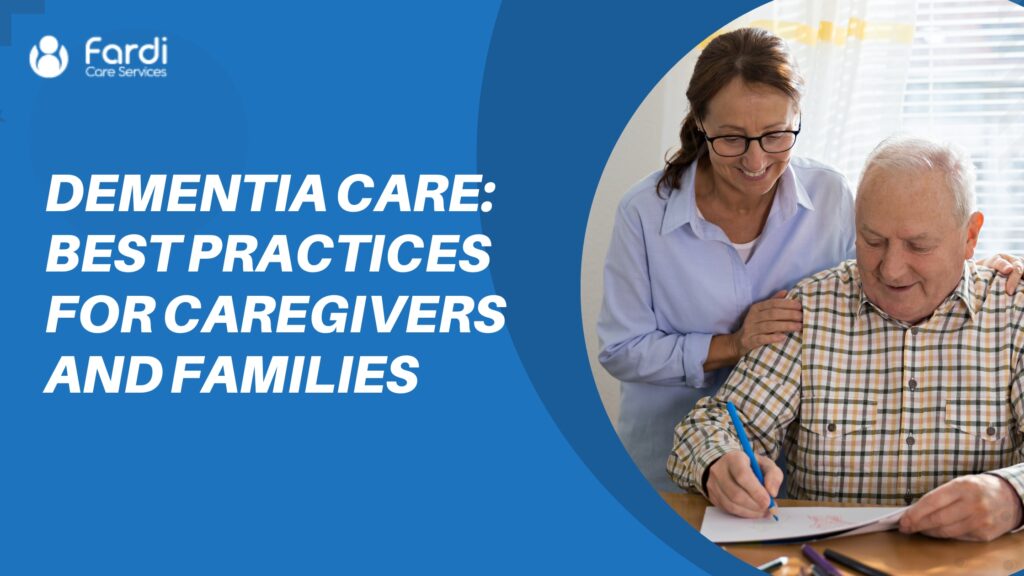Dementia is a challenging condition that affects millions of individuals and their families worldwide. In Minneapolis, as in many other places, the need for dementia care is growing as the population ages. In this comprehensive guide, we will delve into best practices for dementia care, offering valuable insights and support for caregivers and families facing the complexities of this condition.
Understanding Dementia
Dementia is an umbrella term for a range of cognitive impairments that interfere with an individual’s daily life. Alzheimer’s disease is the most common form of dementia, but there are many other types, each with its unique characteristics and challenges. Common symptoms of dementia include memory loss, confusion, mood changes, and difficulty with communication.
Best Practices for Dementia Care
Providing care for a loved one with dementia requires patience, compassion, and a deep understanding of the condition. Here are some best practices for dementia care that can help caregivers and families provide the best possible support:
1. Education and Awareness
Caregivers and family members should educate themselves about dementia, its progression, and its impact on individuals. Understanding the stages of dementia can help anticipate and address changing needs and behaviors.
2. Effective Communication
Dementia can impair verbal communication. Caregivers should practice clear and simple communication techniques, using familiar words and maintaining a calm and reassuring tone.
3. Safety Precautions
Home safety is essential for individuals with dementia. Remove hazards, such as slippery rugs or sharp objects, and install handrails and grab bars where needed to prevent falls.
4. Routine and Structure
Establishing a consistent daily routine can provide comfort and stability to individuals with dementia. Predictable schedules for meals, activities, and bedtime can reduce anxiety.
5. Engaging Activities
Engage individuals with dementia in activities they enjoy and that stimulate their cognitive and sensory abilities. Activities like art, music, and gentle exercise can provide both mental and emotional benefits.
6. Patience and Flexibility
Dementia can lead to behavioral challenges, including agitation and frustration. Caregivers must remain patient and flexible, adapting to changing moods and needs.
7. Respite Care
Caregivers need breaks to rest and recharge. Respite care services in Minneapolis provide temporary relief for family caregivers, allowing them to take care of their well-being.
8. Support Networks
Joining support groups for dementia caregivers can provide a sense of community and access to valuable resources and advice.
9. Legal and Financial Planning
Caregivers should assist individuals with dementia in legal and financial planning, including creating advance directives and power of attorney documents.
10. Self-Care
Caregivers must prioritize self-care to avoid burnout. Taking time for relaxation, hobbies, and physical activity is essential for maintaining their own well-being.
The Role of Technology in Dementia Care
Technology can also play a significant role in dementia care. In Minneapolis, and across the world, technological innovations are helping caregivers and families support their loved ones with dementia:
- Smart Home Devices: These devices can assist with daily tasks, such as medication reminders, and enhance home security.
- GPS Tracking: GPS devices can help locate individuals with dementia who may wander or become disoriented.
- Telehealth Services: Remote healthcare services allow individuals with dementia to access medical care without leaving their homes.
- Cognitive Training Apps: Mobile apps and software programs can provide cognitive stimulation and memory exercises.
Navigating Dementia Care Services in Minneapolis
In Minneapolis, numerous services and resources are available to support dementia care:
- Memory Care Facilities: Specialized facilities offer tailored care for individuals with dementia, providing a safe and supportive environment.
- In-Home Care: Home care agencies in Minneapolis offer skilled caregivers who can provide care and companionship in the comfort of an individual’s home.
- Support Organizations: Organizations like the Alzheimer’s Association provide information, support groups, and resources for caregivers and families.
- Legal and Financial Services: Legal and financial professionals in Minneapolis can assist with planning and decision-making.
Conclusion
In conclusion, dementia care in Minneapolis is a challenging but essential aspect of healthcare as the aging population continues to grow. By following best practices for dementia care, including education, effective communication, safety precautions, routine, and engagement, caregivers and families can provide the best possible support to their loved ones with dementia. Technology also offers valuable tools to enhance care and safety. Additionally, Minneapolis offers a range of services and resources to assist caregivers and families in their journey of caring for individuals with dementia. Remember that self-care is vital for caregivers to maintain their own well-being while providing care and support to their loved ones.


